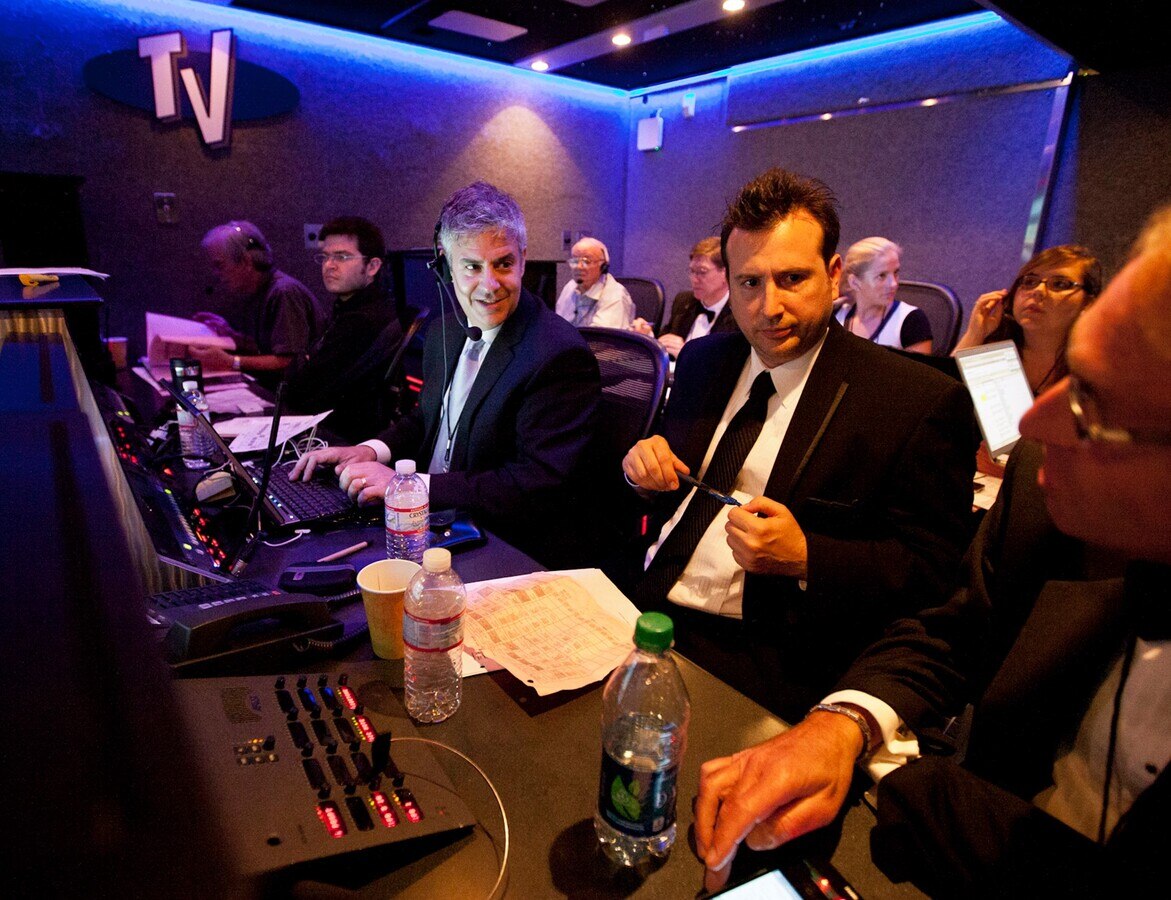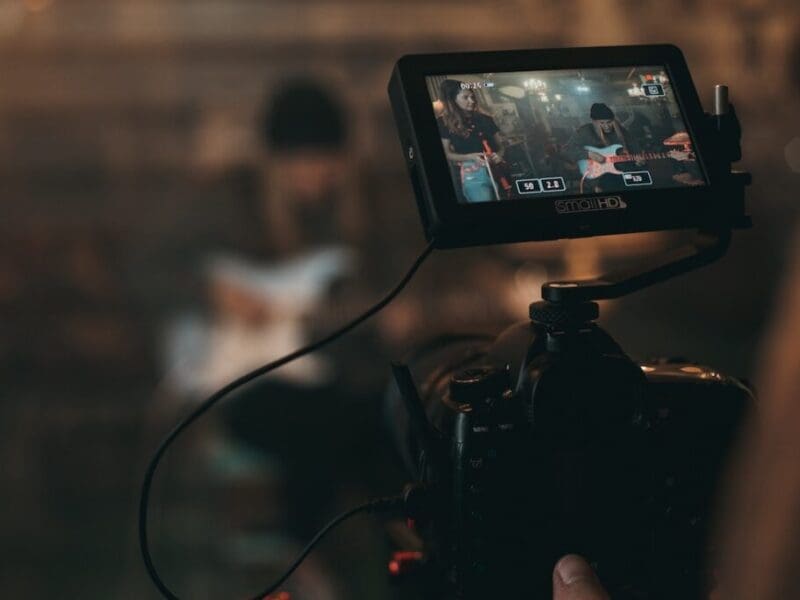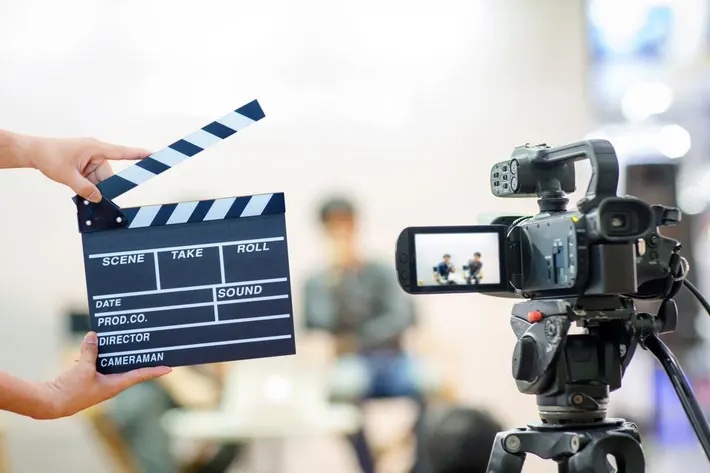
Indie spirit: Get to know Film & TV producer Gabriel Gornell
Do you know what’s the coolest job in film right now? A TV & film producer! – In fact, Gabriel Gornell isn’t just a regular producer who gears up to work on TV shows like America’s Got Talent, but you’ll actually recognize his legendary name from iconic docu series titles like Oprah’s Roots: An African American Lives Special and the mini series The Revolution.
A day in the life of Gabriel Gornell includes “falling deeper & deeper in love with music” and of course, film. In fact, his latest masterpiece – TV special Lollapalooza – alongside director Pablo Aura, brings the audience face-to-face with raw & unique musical performances that we’ve all been missing during lockdown.
Luckily, we had a chance to sit down and talk to award-winning producer Gabriel Gornell about his incredible film journey. Here’s what he had to say.

You started filmmaking at a young age. What was your first film about?
First time I shot film, per se, was actually for a PSA. I lived in New York, so the commercial industry lured a lot of would-be filmmakers because that’s where the advertising business was based. We’d beg, borrow, and steal to get our hands on cameras and short-ends whenever we could in order to build our reels.
If a commercial shoot had a camera package over the weekend, we’d “borrow it” from the lot, and put together elaborate shoots before the agency folks showed up again Monday morning. It was much harder to shoot back then.
That first PSA was shot on spec for AIDS awareness, written to motivate young couples to get tested for HIV. Amazingly, it was picked up by The National Association for People With AIDS, and actually won gold for best PSA at WorldFest.
Working in the film industry since the late 1980s, has your filmmaking technique changed much over the years or have you tried to stay true to your original style of filmmaking?
Certainly the technology is quite different, working through the evolution of film to video to digital. And going from Flatbeds to Premiere. I remember working with Spike Lee as a digital effects producer on Bamboozled. And at the time, it was crazy that he shot the whole film on digital video. Mini DV, actually. Truly ahead of his time. But I’m not sure my style has changed as much as my genre focus.
Over the years, I’ve fallen deeper & deeper in love with music. And I’m most interested in telling stories that connect to music and music culture. From performances to rock docs to scripted stories that live within that world.
If you weren’t in the film industry, what would your next career choice be?
Today I straddle the film industry and the music industry – so I suppose if I wasn’t anchored in film and TV, I’d surely be all-in on music. I’d probably be all-in on curated live performances – which happens to be the type of film content I’ve been making lately! I guess I do what I love.
Are you part of any film communities?
I’m pretty active within the world of international sales and distribution. While the markets have been all virtual for the past year . . . I do enjoy maintaining those relationships and insights. Part of it is the joy of greenlighting a show via an interesting package of international partners – versus a single network commission.
But part of it is maintaining perspective on what’s actually interesting, by looking at what other markets are doing. I do look forward to in-person markets again. Let’s hope for MIPcom in October.
You’ve won many awards for your work, but in your opinion what’s been your most successful film?
I’m always most in love with my current production . . . which is called Back To Amy. It’s a performance-based celebration of Amy Winehouse which will reach audiences with a holistic distribution plan across many touch-points including live stream, television, socials, DSPs, and more.
Today, delivering smart, holistic distribution across connected touch-points is success for me. Much more so than awards.
Having a career in the film industry can be challenging, what’s been your biggest motivation?
I grew up within a pretty discouraging family whereas if you didn’t pursue certain “approved” jobs, you yourself wouldn’t be approved. Kind-of a weird familial 80s cancel-culture. Needless to say, I was “cancelled” by my family and I had to find motivation within myself. I remember when mother refused to watch a film of mine that had won an award at Sundance. She was a piece of work.
I really did have to find motivation within myself . . . and I looked forward to someday having my own family which encouraged my own kids to go after whatever they were passionate about. My daughter in high school just won a National Gold Key from Scholastic for a mixed media painting. And my son will soon succeed in his own way, too. And I truly love their pursuits . . . so maybe, all these years later, they’ve become the motivation.
Who in the film industry are you most inspired by?
Creatively, it’s always been Alan Parker, who we sadly lost last year. And for a very long time and within very different genres. Bugsy Malone as a kid. And later films like Fame, Pink Floyd – The Wall, and The Commitments. I love all those music films. But even films like Angel Heart really inspired me in terms of creating worlds with tone & art direction.
You’ve worked on incredible shows ranging from The Wire to reality shows like America’s Got Talent. Do you prefer working on TV shows or films?
The lines between TV & film are blurred more than ever. If the question is episodic versus feature-length – then I’d have to go with episodic for scripted and feature-length for events or documentary.
I’m excited to be working on the episodic adaptation of Pamela Des Barres’ NY Times bestseller, I’m With The Band. I originally saw it as a coming-of-age dramatic feature. But falling in love with so many excellent series of late, like The Marvelous Mrs. Maisel & The Queen’s Gambit. . . I now think I’m With The Band can only be produced as a series, today. And I love what it will become.
Tell us about your latest film Lollapalooza.
I was honored to serve as an Executive Producer on Lollapalooza’s most recent outing – which sadly had to go virtual in 2020 like so many other major events. This was one of the first major COVID-compliant event productions, and I think we set the groundwork for many specials & award shows to come.
We’re always told to ‘think outside the box’ in production, but with something like this, for health safety, the challenge was the opposite. Make it great within a very defined box! My personal favorite elements were the ultra-intimate live backyard performances. No shiny floors. No arena crowds. Just an artist, a guitar, and some singing birds and swaying trees. Magical musical moments that I experienced from behind a mask.
Have you worked on many musical documentaries before? How did the process of filming a virtual event differ from standard docs?
Happy to say that story-telling is story-telling. The hard part is still coming up with the unique idea or unique perspective that will capture an audience with its relevance or access. Of course “COVID compliance” changed the process, but those are just details about “how” we do it. I’m far more interested in “why” we do it, which thankfully wasn’t impacted by the virus.

In your opinion, how has lockdown impacted your way of producing films?
I did have several shoots cancelled in 2020. Some directly because of lock-down. And others from the trickle down – including network staffing-cuts and budget-cuts based on economy speculation. It was a tough year for production.
It’s incredibly hard to get a show green-lit in any year . . . so to have them cancelled after they were already green-lit was tough. But answering your question, it’s impacted my development just as much. We do have to ask ourselves, ‘does this scene or song really require a crowd or an audience?’ ‘Is it the in-person audience that makes it engaging?’
Thankfully, the answer isn’t usually yes.
Do you see yourself collaborating with more bands in the future?
Absolutely. And not just the already-established big bands like The Rolling Stones – who I do love collaborating alongside. I’m perhaps most excited about an emerging artist called Young Summer. She’s an incredible songwriting talent with an immediately recognizable voice.
I speak about holistic distribution, and I’m really excited about how an artist like Young Summer can reach audiences via a 360 approach beyond the DSPs. How her music lives via film – and not just sync. How does her music reach audiences via live stream and television and direct-to-fan? And how can socials be more than just marketing for the DSPs? I get very excited about figuring out holistic distro plans.
What’s your next project?
The week before MipTV I suppose things might change radically, but here’s two on my front burner. There’s I’m With The Band, based on Pamela Des Barres’ NY Times Bestseller, as a scripted coming of age episodic. I’m developing that with Pamela, alongside our showrunner Scarlet Lacey and my Executive Producer team which includes Merideth Finn, Michele Weiss, and myself. I’m proud to be the only guy on this team of smart, talented women.
The other project that’s moving ahead for Summer is Back To Amy, which is a performance special in celebration of Amy Winehouse on the 10th year since her passing. I’m producing this with Charles Moriarty and it’s based on his photography exhibit and book of the same name. We first unveiled this show as an official exhibit at SXSW 2019, and we’re thrilled to be bringing it to larger audiences this summer via stream and television.
Throughout your career, what’s been your greatest challenge?
Truthfully, it’s probably been maintaining independence. Coming up within the independent film scene of NYC, we wore indie films like a badge of honor. But in LA, the culture is such that indie film is often viewed as simply a place for artists who weren’t able to get jobs within the studio system – which was never the point, because who truly loves art-by-committee? All that said, if I were to do it all again, I’m not sure I’d fight to stay independent . . . albeit far more romantic!
What’s the best piece of advice you could give to upcoming filmmakers?
I think this connects to what I said about my greatest challenge. I think my advice would be to build your circle of relationships straight away – and join a network, or talent agency, or studio early on.
Even if launching an independent production company is the true dream, an in-person network of relationships is so important. And while Linkedin and socials do matter – it doesn’t compare to actually working with people. So perhaps sign onto the machine while you’re young – or you never will. I get it why that may not be attractive to a young director or young producer, but your network of relationships is often more important, dare I say, than your incredible script.
Are there any great indie filmmakers that should be on our radar?
Can we still consider Spike Lee an indie filmmaker? I still love his work, and David Byrne’s American Utopia was a recent standout for me. Also, with our current I’m With The Band project, I’ve been looking at more coming-of-age films of late, and Rocks from director Sarah Gavron is quite good. Selfishly, happy she’s not 22 years old either. My ego couldn’t take it. She’s earned it . . . being that good.
What’s your favorite 1980s film of all time and why?
I have so many favorites from the 80s. But since we were speaking about Alan Parker, I’m going to double down with Angel Heart from 1987. Funny, because it’s one of his non-music films. But it was Neo-Noir at its best. Visually stunning. And it opened the door to so many films from before my time that I had no idea about.
Like Fritz Lang. I honestly didn’t even know that German films were a thing, and never even heard of M. And it was absolutely Angel Heart that turned me onto them. It didn’t hurt that Mickey Rourke epitomized cool. Lisa Bonet was all grown up. And Robert De Niro as the devil. I just love that film.
What is one skill you’ve tried to master during lockdown?
Lots of times in-doors . . . so don’t judge. My passion has been curating recipes with the perfect vinyl album to play to during the meal. I guess this is what I’ve been trying to master.
I think my best so far is this really nice Bouillabaisse that I’ve been working on, paired with La Question by Françoise Hardy which originally came out in 1971. It makes for the perfect stay-at-home date night with my wife. And the kids happen to love it, too.







